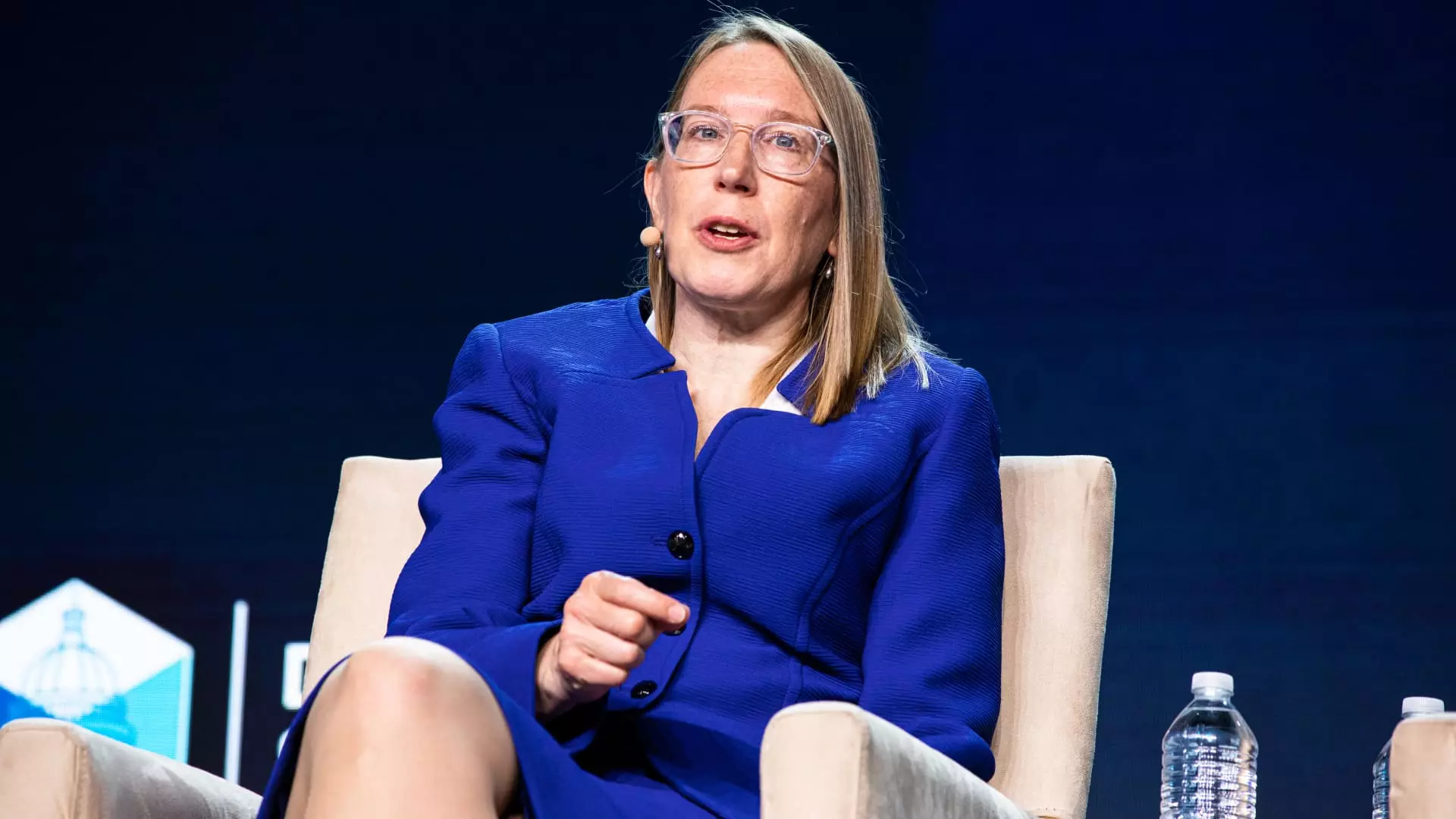As the popularity of meme coins skyrockets, the regulatory landscape is shifting in ways that seem to favor innovation over scrutiny. Hester Peirce, a prominent commissioner at the U.S. Securities and Exchange Commission (SEC), voiced concerns regarding the agency’s laissez-faire approach toward meme coins like $TRUMP. Peirce indicated that the SEC’s decision in February to classify most meme coins as non-securities significantly limits investor expectations of regulatory protection. This shift not only allows for a volatile trading environment but also raises questions about accountability in the crypto world.
In her remarks, Peirce drew parallels with the meteoric rise of non-fungible tokens (NFTs) in 2021, arguing that, just like NFTs, meme coins can experience wild price fluctuations driven by market activity rather than intrinsic value. The SEC, she suggests, should have seized the opportunity to clarify its stance, making it explicit that the agency would not intervene in meme coin matters. This messaging gap reflects a broader issue where budding investors, particularly those less familiar with the intricacies of cryptocurrency, might find themselves operating in a minefield devoid of clear safety nets.
The Trump Effect on Meme Coins
The emergence of the $TRUMP token raises pertinent questions regarding the intersection of politics and finance. Launched shortly before Trump’s inauguration, the token initially garnered a jaw-dropping market cap of $15 billion, primarily spurred by Trump’s direct engagement on social media. Yet, the subsequent nosedive in its value reveals the inherently speculative nature of meme coins.
Despite its rapid ascent, skeptics argue that the $TRUMP token lacks foundational value, a characteristic common among many meme coins. Control predominantly rests with the Trump Organization, causing critics to express concerns over potential conflicts of interest. The narrative that political figures could utilize cryptocurrencies for personal gain while evading traditional scrutiny adds an unsettling layer to the already tumultuous image of meme coins. Would-be investors must tread carefully, as they grapple not only with market volatility but also with the ethical implications of their investments.
A Controversial Alliance
In the growing intersection of politics and cryptocurrency, we witness a controversial alliance. Recent developments have suggested that figures like Changpeng Zhao of Binance—who navigates both financial and political currents—could be redefining how the crypto sphere interacts with Washington. After a drawn-out legal battle, the SEC dropped its lawsuit against Zhao, which had accused him of numerous financial misdeeds, including evasion of investor protection laws. Analysts argue that this decision highlights a troubling pattern of regulatory leniency for powerful players within the crypto space, particularly as they engage with political figures.
Accompanying Zhao’s legal fortunes are deeper ties to Trump-affiliated networks and financial backing from foreign entities. The case of Binance illustrates a growing trend where powerful crypto figures leverage political connections to navigate the regulatory landscape. Such relationships raise important questions about fairness in the marketplace and the potential for regulatory capture—a scenario where entrenched interests influence policymakers to foster favorable conditions for specific players at the potential cost of consumer protection and market integrity.
Peirce’s Take on the SEC’s Direction
Peirce remains optimistic that the SEC is moving toward a more coherent regulatory framework that will allow traditional financial institutions to participate more freely in the crypto market. Her comments on rescinding Staff Accounting Bulletin 121, which effectively stifled traditional banks’ ability to offer crypto custody services, signal a pivot toward both clarity and inclusiveness in regulatory policy. By dismantling barriers that had previously sidelined mainstream players, Peirce emphasizes that the SEC aims to foster an environment conducive to innovation while retaining oversight.
Yet, critics of this strategy argue that it risks creating a Wild West scenario within the cryptocurrency sector, wherein inexperienced investors may fall prey to unscrupulous schemes. Peirce’s assertion that these new regulatory approaches aren’t politically motivated is met with skepticism from those who point to the growing popularity of crypto among politically connected individuals and businesses. At the heart of the debate lies a fundamental question: Can the SEC effectively strike a balance between promoting innovation and protecting investors?
The Road Ahead
The ongoing evolution of meme coins presents a fascinating case study in the interplay of technology, finance, and regulation. As the SEC seeks to recalibrate its approach, the coming months may determine whether the agency can adapt effectively to the fast-paced world of cryptocurrency. As the boundary between politics and financial markets continues to blur, investors will need to navigate these waters with caution—carefully weighing both the opportunities and risks in a landscape that seems as volatile as the coins themselves. Only time will tell how the SEC will respond to ongoing criticism and whether it can learn from past missteps to build a more robust, trustworthy regulatory environment for this burgeoning asset class.

